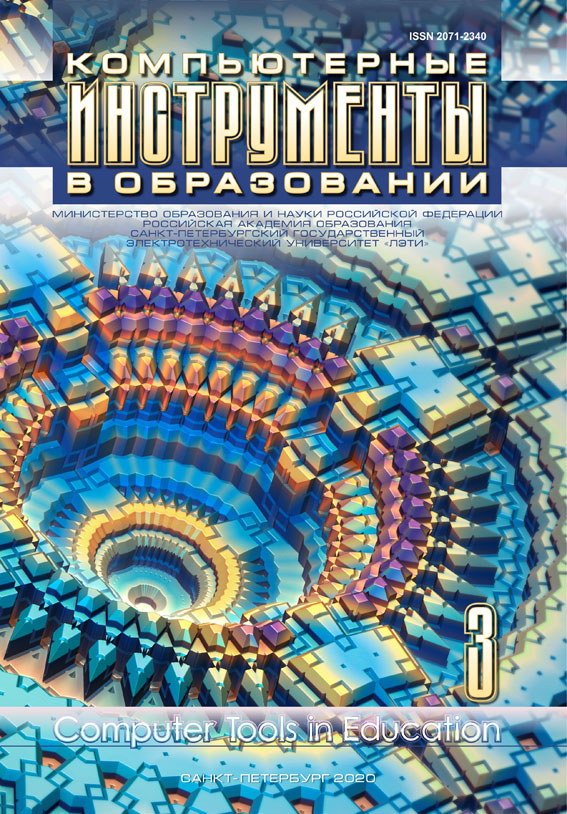Оценка потенциала научной деятельности на основе наукометрических показателей
Аннотация
Настоящая статья посвящена вопросам оценки научной деятельности коллективов исполнителей при подаче заявок в научные фонды. Цель исследования заключается в разработке новых подходов в применении наукометрических показателей для получения оценки научного потенциала коллективов университета при подаче заявок на конкурсы в научные фонды. Методологические основы исследования: системный подход (рассматривает науку как социальный институт в неразрывной связи с обществом в целом), метасистемный подход (рассматривает результаты научной деятельности как метасистему, то есть систему с относительно независимыми компонентами), вероятностно-статистический подход (рассматривает исследовательскую деятельность как вероятностный процесс), квалиметрический подход (рассматривает продуктивность научной деятельности как латентную переменную, отражаемую множеством критериев). Как результат авторами предложены: информационная модель взаимосвязи требований, предъявляемых к научному проекту со стороны заказчика, и уровня соответствия научного потенциала коллектива исполнителей и методика оценки научного потенциала коллектива исполнителей при подаче заявки на конкурс. Информационная модель лежит в основе разработанной информационной системы поддержки проектной деятельности Университета ИТМО, служащей для улучшения процесса и повышения эффективности подготовки проектов заявок, подаваемых от университета. Предложенная методика реализована с применением наукометрических показателей, посредством программных алгоритмов для автоматизированной оценки научного потенциала. В ходе экспериментального исследования авторами было показано, что предложенные подходы коррелируют с результативностью участия в конкурсах. Предложенные решения успешно интегрированы в систему управления Университета ИТМО.
Литература
Ministry of Education and Science of Russia, Order of March 5 2014 № 162, (in Russian). [Online]. Available: https://base.garant.ru/70649666/
L. Bornmann, R. Mutz, and H. D. Daniel, “Are there better indices for evaluation purposes than the h-index? A comparison of nine different variants of the h index using data from biomedicine,” Journal of the American Society for Information Science and Technology, vol. 59, no. 2, pp. 830–837, 2008; doi: 10.1002/asi.20806
A. B. Tsiganov, “Brief rewiev of main scientometric indices based on citations,” Large-Scale Systems Control, pp. 248–261, 2013 (in Russian).
Q. L. Burrel, “Hirsch’s h-index: a stochastic model,” Journal of Informetrics, vol. 1, no. 1, pp. 16–25, 2007; doi: 10.1016/j.joi.2006.07.001
J. E. Iglesias and C. Pecharroman, “Scaling the h-index for different scientific ISI fields,” Scientometrics, vol. 73, no. 3, pp. 303–320, 2007; doi: 10.1007/s11192-007-1805-x
J. E. Hirch, “An index to quantify an individual’s scientific research output that takes into account the effect of multiple coauthorship,” Scientometrics, vol. 85, pp. 741–754, 2010; doi: 10.1007/s11192-010-0193-9
P. D. Batista, M. G. Campiteli, O. Kinouchi, and A. S. Martinez, “Is it possible to compare researchers with different scientific interests?” Scientometrics, vol. 6, pp. 179–189, 2006; doi: 10.1007/s11192-006-0090-4
A. V. Komarov, M. A. Sleptsova, E. V. Chechetkin, and K. A. Komarov, “Specialized tools to evaluate the potential of a R&D project team,” The Economics of Science, vol. 6, no. 1–2, pp. 75–87, 2020 (in Russian); doi: 10.22394/2410-132X-2020-6-1-2-75-87
O. A. Zyateva and E. A. Pitukhin, “Managing university science indicators: an analysis of publishing activity,” Perspektivy nauki i obrazovania — Perspectives of Science and Education, vol. 40, no. 4, pp. 509–517, 2019 (in Russian); doi: 10.32744/pse.2019.4.39
Y. Sheikhnejad and T. Yigitcanlar, “Scientific landscape of sustainable urban and rural areas research: A systematic scientometric analysis,” Sustainability, vol. 12, no. 4, pp. 1–28, 2020; doi: 10.3390/su12030779
I. V. Zibareva, L. Y. Ilina, B. L. Alperin, and A. A. Vedyagin, “The Scientometric Profile of Boreskov Institute of Catalysis,” Herald of the Russian Academy of Sciences, vol. 89, no. 3, pp. 259–270, 2019 (in Russian); doi: 10.1134/S1019331619030109
R. D. Shelton, “Scientometric laws connecting publication counts to national research funding,” Scientometrics, vol. 123, no. 1, pp. 181–206, 2020; doi: 10.1007/s11192-020-03392-x
A. V. Grinev, “The Use of Scientometric Indicators to Evaluate Publishing Activity in Modern Russia,” Herald of the Russian Academy of Sciences, vol. 89, no. 5, pp. 451–459; doi: 10.1134/S1019331619050046
M. Shley, G. Markina, and O. Kuznetsova, “Support system for project application preparation activities in a university,” in Proc. Scientific and educational information environment of the XXI century:
Materials of the X All-Russian scientific and practical conference (Petrozavodsk, Sept. 20–23, 2016), 2016, pp. 171–174.
M. D. Shley and G. L. Markina, “Applications preparation information system for research funds,” Fundamental research, no. 5–2, pp. 289–293, 2016 (in Russian).
G. L. Markina and M. D. Shley, “Decision support organization in science and education on the example of project management system,” Computer Tools in Education, no. 4, pp. 19–31, 2016.
G. L. Markina, M. D. Schlei, O. V. Kuznetsova, and T. A. Markina, “Analysis of the dependence of the effectiveness of requests submitted to scientific competitions from the criteria for their evaluation,” in Proc. 19th International Multidisciplinary Scientific GeoConference, SGEM 2019, vol. 19, no. 2.1, 2019, pp. 83–90; doi: 10.5593/sgem2019/2.1/S07.011
Russian Science Foundation, [WEB site], Available: https://rscf.ru/contests/
“On Amendments to Parts One, Two and Four of the Civil Code of the Russian Federation, and Certain Legislative Acts of the Russian Federation,” Federal Law, 12.03.2014, N. 35-FZ.
“On Amendments to the Regulation on the Award of Academic Degrees,” Resolution of the Government of the Russian Federation, 21.04.2016, № 335
Материал публикуется под лицензией:








